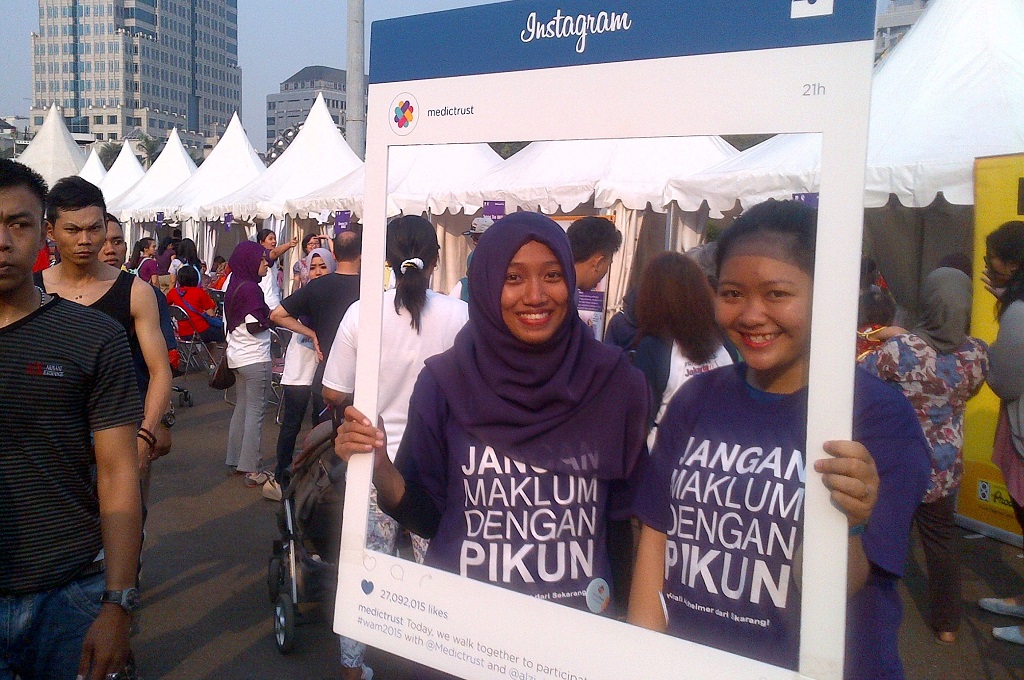medcom.id, Jakarta: Dementia is not always for the elderly. One with a young age may also be threatened by the dementia attack.
"Within the past three years, the public had been aware that the symptoms of Alzheimer may occur during the young age. We even have reports that Alzheimer has struck a young man of 22 in West Java," said the Executive Director of Alzheimer's Indonesia, DY Suharya in Monas, Central Jakarta, Sunday (9/27/2015).
Based on the latest research, the dementia patients in Indonesia increases every year. The increase has reached 20 percent, or currently at 1.2 million people. Aside from health factor, the dementia also endangers the family's economy.
Based on the data received by DY, Alzheimer patients have experienced an addition to their loss from US$1.7 billion to US$2 billion. The loss was caused by loss of income for those with dementia (ODD), the treatment expense of ODD, as well as several medication expenses to be paid.
"If the partner (of ODD) is a member of the family, then the economic loss emerging is the loss of income from the family members, as they turned from worker to caregiver," he mentioned.
Therefore, DY with the non-profit organization have campaigned the Alzheimer Movement since 2013. Today, his organization also conducted a health walk "Fight Dementia", coinciding with the World Alzheimer's Month.
Through the activity, they have tried to socialize the danger of dementia. The public is hoped to pay early attention on the symptoms related to the dementia disease.
"Risks of Alzheimer can be reduced by applying healthy life pattern, regular sports, consuming nutritious and balanced food, positive thinking and productively active," he said.
Here are some of the dementia symptoms to be remembered:
1. Memory disruptions.
Often forgets what had just happened, forgetting appointments, asking and telling the same issue over and over again, as well as forgetting where to park in a high frequency.
2. Hard to focus.
Having a hard time in conducting activities, daily chores, forgetting how to cook, operating phones, cellphones, unable of doing simple calculation and working with a longer time than usual.
3. Hard to do familiar activities.
Often hard to plan or complete daily activities, confused on how to drive and hard to manage financial issues.
4. Disoriented.
Confused of time (day/date/important dates), confused where they are and how they get there, don't know how to get home.
5. Trouble in understanding visuospatial.
Hard to read, measure distance, stating distance, differentiating colors, not recognizing one's face in the mirror, hitting a glass when walking, spilling water when pouring it into a glass.
6. Communication disruptions.
Hard time in talking and finding the right words, as often stopped in the middle of conversations and confused to continue.
7. Placing items where they don't belong.
Forgetting where to put items, even suspicious that someone steals or hides the items.
8. Making wrong decisions.
Dressed poorly, for example wearing red left socks and right blue socks, unable to calculate payments in a transaction, and unable to take care of oneself well.
9. Retracting from social life.
Not having the spirit or initiative to conduct activities or hobbies, as not too spirited in gathering with their friends.
10. Change of behavior and personality.
Emotion changes drastically, confused, suspicious, depression, fear or over dependency in family members, easily disappointed and desperate both at home and at work.
Cek Berita dan Artikel yang lain di Google News
FOLLOW US
Ikuti media sosial medcom.id dan dapatkan berbagai keuntungan



















